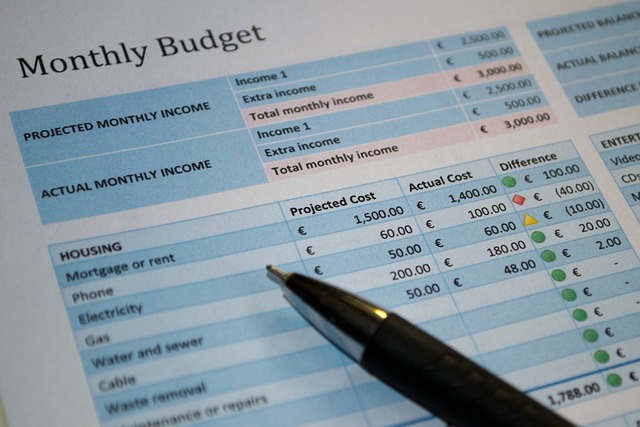Shopping for Important Items

Shopping for important items can be both exciting and challenging. Whether you’re buying essential household goods, upgrading your electronics, or investing in items crucial for your work or hobbies, one thing is certain: staying within your budget is paramount.
Overspending can strain your finances and disrupt your financial goals. However, with careful planning and smart strategies, you can shop for important items without breaking the bank. In this article, we will explore a range of tips and techniques to help you meet your budget while shopping for important items.
1. Create a Budget

The first and most crucial step while shopping for important items is to create a budget. Start by listing your monthly income and all your fixed expenses, such as rent or mortgage, utilities, and groceries. Then, allocate a portion of your income for savings and investments. Once you’ve accounted for these essentials, determine how much you can allocate to shopping for important items. Having a clear budget in place will serve as your financial roadmap, helping you make informed decisions.
2. Prioritize Your Needs

Before you start shopping, identify your needs and wants. Important items are those that serve a specific purpose in your life. For example, a new laptop for work or a refrigerator replacement for your home. Focus on fulfilling your needs first, and once your essential requirements are met, you can consider allocating funds to wants or non-essential items.
3. Research and Compare Prices

Knowledge is power when it comes to shopping for important items. Research the items you plan to buy thoroughly. Look for product reviews, compare prices from different retailers, and explore online marketplaces. Sometimes, you can find the same quality item at a lower price with a little extra effort.
4. Set a Price Range
Based on your research, set a price range for each item on your shopping list. Having a range instead of a fixed budget allows for flexibility. You may find items at the lower end of your range that meet your needs perfectly, saving you money in the process.
5. Utilise Promo Codes and Coupons

Take advantage of coupons, discounts, and promotional offers. Many stores provide coupons through their websites, email newsletters, or mobile apps. Additionally, consider signing up for loyalty programs, which often provide exclusive discounts to members.
6. Consider Second-Hand or Refurbished Options
For certain items, such as furniture, electronics, or clothing, consider purchasing second-hand or refurbished items. There are online platforms that have great deals on refurbished or secondhand items, such as thrift stores. These can often be significantly cheaper than brand-new items and are often in excellent condition.
7. Timing Matters

Keep an eye on sales events and holiday promotions. Shopping during sales seasons, like Black Friday or Cyber Monday, can lead to significant savings. However, be cautious not to get caught up in the excitement and buy items you don’t need just because they are on sale.
8. Negotiate When Possible

Don’t be afraid to negotiate the price, especially when dealing with independent sellers or in situations where haggling is expected. Polite negotiation can sometimes lead to discounts or additional perks.
9. Use Cash or Debit Cards
Using cash or debit cards can help you stay within your budget. When you pay with cash or a debit card, you’re using the money you already have, reducing the risk of overspending compared to using credit cards.
10. Sleep on It
Before making a significant purchase, give yourself some time to think it over. Impulse buying can lead to overspending. By waiting a day or two, you can assess whether the item is truly essential and whether it fits your budget.
11. Consider Financing Options
If you’re making a substantial purchase, explore financing options, but do so cautiously. Be aware of interest rates and repayment terms, and make sure the monthly payments fit comfortably within your budget.
12. Track Your Expenses
Even after you’ve made your purchases, continue to track your expenses. This helps you stay accountable to your budget and makes it easier to identify areas where you might need to cut back on other spending categories to compensate.
13. Review and Adjust
Periodically review your budget and spending habits. If you find that you consistently overspend in certain areas, consider adjusting your budget to better align with your financial goals.
Final Thoughts
Meeting your budget while shopping for important items requires careful planning, prioritization, and a willingness to explore money-saving strategies. By following these tips and staying disciplined in your spending, you can shop for essential items without sacrificing your financial stability. Remember, a well-managed budget not only helps you meet your immediate needs but also paves the way for a secure financial future.